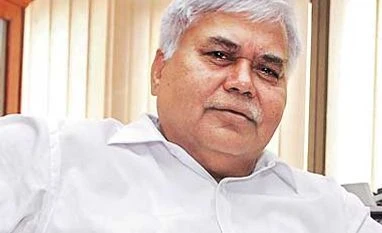Net Neutrality: Trai order gives start-ups premium relief
Smaller start-ups feared they might have to pay premium if differential pricing was allowed by the telecom regulator
)
The Telecom Regulatory Authority of India (Trai)’s ruling on differential pricing has come as a relief for start-ups, especially the smaller ones.
Many had feared paying a premium to stay relevant if the regulator had not put to rest the controversy of differential pricing by imposing a heavy penalty on anybody opting for differential pricing. “No service provider shall offer or charge discriminatory tariffs for data services on the basis of content,” the telecom regulator had said on Monday.
E-commerce players have been batting for net neutrality because smaller start-ups cannot afford the expenses required to push their services via faster internet — something that differential pricing would have introduced, said Nilotpal Chakravarti, associate vice-president of the Internet and Mobile Association of India. The whole idea (of internet) was to provide a level-playing field which differential pricing would have taken away, added Chakravarti.
Differential pricing is the system of a service provider charging varied tariffs for data services based on the content accessed, transmitted or received by the consumer.
"Not only us, even some of the bigger start-ups would have had difficulty getting preferred services as paying a premium is a costly affair," said Ashwin Meshram, co-founder of ONE Rewardz, a mobile based customer engagement solution for retailers and brands. "We would have been left at the mercy of telecom operators. We app developers anyway have to deal with funds crunch and other problems. Differential pricing would have been extremely bad for business."
Major e-commerce players such as Zomato, Paytm and Snapdeal had opposed differential pricing as they were apprehensive their businesses would be affected. Their fear was that companies with tie-ups with certain telecom operators would be given preference, hurting others. Flipkart had wanted to tie up with Bharti for its Airtel Zero scheme but later withdrew after a backlash on social media.
Last month, employees of nearly 700 start-ups, including Zomato, Cleartrip and Paytm, had petitioned Prime Minister Narendra Modi to defend net neutrality, which they defined as access to content on the internet without any discrimination. "We urge you to ensure that the recently announced initiative, Start-Up India, address the concern of net neutrality, with clearly defined policies and firm rules," the letter said.
Many had feared paying a premium to stay relevant if the regulator had not put to rest the controversy of differential pricing by imposing a heavy penalty on anybody opting for differential pricing. “No service provider shall offer or charge discriminatory tariffs for data services on the basis of content,” the telecom regulator had said on Monday.
E-commerce players have been batting for net neutrality because smaller start-ups cannot afford the expenses required to push their services via faster internet — something that differential pricing would have introduced, said Nilotpal Chakravarti, associate vice-president of the Internet and Mobile Association of India. The whole idea (of internet) was to provide a level-playing field which differential pricing would have taken away, added Chakravarti.
Also Read
Differential pricing is the system of a service provider charging varied tariffs for data services based on the content accessed, transmitted or received by the consumer.
"Not only us, even some of the bigger start-ups would have had difficulty getting preferred services as paying a premium is a costly affair," said Ashwin Meshram, co-founder of ONE Rewardz, a mobile based customer engagement solution for retailers and brands. "We would have been left at the mercy of telecom operators. We app developers anyway have to deal with funds crunch and other problems. Differential pricing would have been extremely bad for business."
Major e-commerce players such as Zomato, Paytm and Snapdeal had opposed differential pricing as they were apprehensive their businesses would be affected. Their fear was that companies with tie-ups with certain telecom operators would be given preference, hurting others. Flipkart had wanted to tie up with Bharti for its Airtel Zero scheme but later withdrew after a backlash on social media.
Last month, employees of nearly 700 start-ups, including Zomato, Cleartrip and Paytm, had petitioned Prime Minister Narendra Modi to defend net neutrality, which they defined as access to content on the internet without any discrimination. "We urge you to ensure that the recently announced initiative, Start-Up India, address the concern of net neutrality, with clearly defined policies and firm rules," the letter said.
More From This Section
Don't miss the most important news and views of the day. Get them on our Telegram channel
First Published: Feb 09 2016 | 11:02 PM IST
